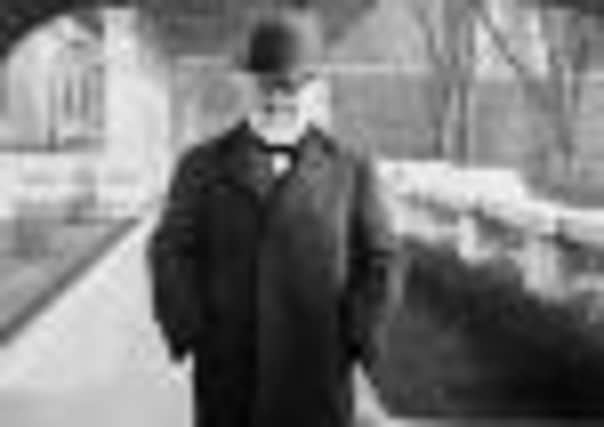Alex Salmond: history binds Scotland with US


Unofficial Tartan Day celebrations have been taking place in New York since 1982, but this nationwide celebration of Scotland – now enshrined in statute – has led to the development of the highly successful Scotland Week initiative, and a major platform for the promotion of Scottish interests in North America.
The United States is our most successful export market and one of our biggest tourist markets. Scottish ideals and ideas have influenced many US institutions and that exchange of ideas in science, economics and democracy continues today.
Advertisement
Hide AdAdvertisement
Hide AdThese themes of tourism, business and the sharing of ideas and culture lie at the heart of this year’s Scotland week.


Because tourism is our largest industry, developing the huge US market is vital during tough economic times. In New York last week I participated in the official US launch of Homecoming 2014. We know that tens of millions of people across the US claim Scottish ancestry and it is this natural warmth to Scotland that we must capitalise on to make next year’s programme a success.
So far, more than 100 events have been announced and with a strong ancestry thread running through many of the major festivities, Homecoming will offer those in the United States with Scottish connections – and those without – the perfect opportunity to plan their trip to Scotland.
Scotland is admired in the US, not just for its natural beauty or the warmth of its welcome but for our deserved reputation as the land of innovation and a centre for business.
According to Ernst & Young, Scotland is the most attractive place for inward investment in the United Kingdom – ahead of all other regions, including London. Many US firms have bases in Scotland or work in partnership with Scottish industry.
That attraction, which comes from the quality of our workforce, our world-class education system and our competitive business environment, was evident during a series of business meetings in New York and in the partnerships announced during this Scotland week.
In life sciences, Daktari Diagnostics will base their global manufacturing base in Inverness with the creation of 126 jobs. In software development, SAS are to open a new advanced analytics lab in central Scotland bringing 94 jobs. And in marine renewables, ResHydro will become the first US renewable energy company to invest in Scotland after we announced it planned to base operations here and work in partnership with Strathclyde University to develop its hydrokinetic energy generation device.
Securing jobs and investment for Scotland is a key part of my job as First Minister and I am confident that the transatlantic connections and friendships made in the course of the trip will bear fruit as we strengthen even further our economic ties and demonstrate what a great place Scotland is to do business.
Advertisement
Hide AdAdvertisement
Hide AdOur reputation for business comes in part from one of Scotland’s greatest exports to America, the businessman and philanthropist Andrew Carnegie and it was a privilege to address the prestigious Carnegie Council for Ethics in International Affairs on Scotland’s economic strengths as well as our democratic and constitutional journey.
At the Carnegie Council, as well as offering an opportunity to highlight Scotland’s economic strengths and affirm our determination to continue to work closely with our friends across the Atlantic, there was an appreciation of the peaceful and orderly way in which our century-long debate on self-determination has been conducted.
Scotland’s self-determination process has been entirely absent of the violence that has marked many constitutional debates over the centuries. Indeed, the Edinburgh Agreement, signed in October, was sealed with a handshake and a firm commitment that the result of next year’s vote would be respected on both sides. I firmly believe that the way this process has been handled should be held up as an exemplar of modern democracy, a thesis that has been extremely well received in America – the home of that modern democracy.
This set of shared values that has developed over the past two hundred years takes heavily from the Enlightenment and the thoughts of philosophers such as Adam Smith. It also builds on the principles of education that Scots such as the founder of Princeton James Witherspoon took with them to America.
I was delighted to speak at Princeton University, by invitation of another Scot – Professor William Storrar, on the theme of Adam Smith and “the wealth and wellbeing of nations”. Whether in Scotland, America or in some of the developing countries of the need for governments to show greater empathy for the poorest in society as they plan their way out of tough economic times is essential and a key lesson from Adam Smith. It is an approach which is the very antithesis of Westminster’s so-called Bedroom Tax which will impact on the most vulnerable.
One of the final events in my Scotland Week programme will hark back to that historical period and demonstrate these bonds so strongly. On Monday I presented two volumes of George Washington’s correspondence to his home at Mount Vernon. The books will be loaned from the National Library of Scotland in an initiative that I hope will strengthen yet further the ties that bind our two countries.